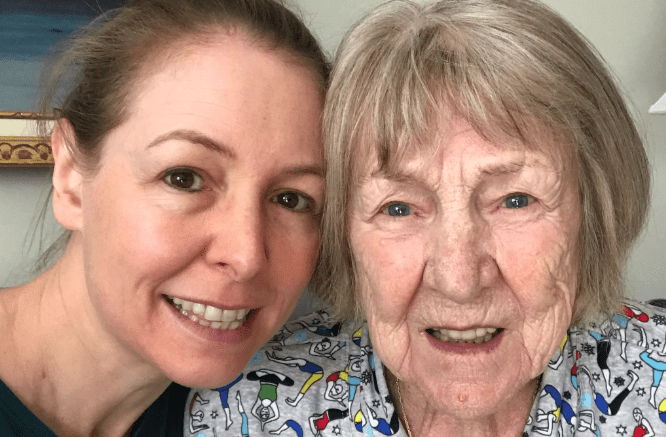Golden Christie was given the name Golden for a reason. She lit up every room she entered and made a big impact on everyone she met.
To Christie Page, Golden was not just a grandmother, but her best friend. Christie remembers her grandmother as kind, lively and a person with a zest for life for most of her 94 years.

However, as Golden got older and health problems began to stack up, her zeal for life and lively energy faded. Golden had lost her eyesight and seemed to be in constant pain.
She seemed sad, lonely and bored with the world and could no longer interact with people like she once did, according to her granddaughter.
“She wished for death every night,” Christie said.
When she reached the age of 97, Golden was able to fulfill that wish. She supported MAID and became just one of the 31,664 people who have received Medical Assistance in Death (MAID) in Canada. It was a decision Golden made herself, and one that the rest of her family supported, according to Christie.
Medical Assistance in Dying (MAID) became law in Canada in 2016, allowing Canadians who were “intolerably” suffering near death or a foreseeable “natural death” to request MAID. Since then, with years passing and the call for expansion, the law eligibility criteria have continuously expanded.
Health professionals and advocacy groups are worried about all the complex ethical concerns that the constant expansion of (MAID) brings.
Listen to Muzna Erum’s podcast on MAID:
In 2021, the bill expanded to allow individuals who were suffering but saw no foreseeable natural death to request MAID. In 2022, it expanded again, this time allowing those who “intolerably” suffering from an underlying mental health condition to receive MAID. That expansion will go into effect in March 2024.
With each expansion, eligibility has also brought ethical concerns from medical professionals, government and advocacy groups worried about the eligibility criteria and how it will affect vulnerable populations such as those low-income or those with disabilities.
In this podcast episode, Muzna Erum explores the ethical concerns brought about by the expansion of MAID. Advocacy groups and health professionals discuss why there are sometimes concerns around the expansion of the legislation.
Read more from the Toronto Observer:

